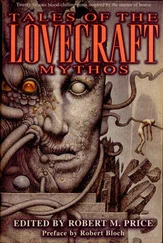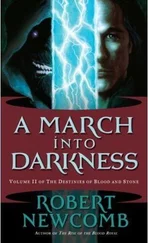Dusenberry thought for a while and said he supposed it was. Phædrus didn’t have any answer either, but for some reason he had been as amused and puzzled as LaVerne was.
A few months later she was killed in an airplane crash, and a few years after that Dusenberry was gone too and Phædrus' own hospitalization and recovery had clouded over all memory of that time and he’d forgotten all about it, but now suddenly, out of nowhere, here it was again.
For some time now he’d been thinking that if he were looking for proof that substance is a cultural heritage from Ancient Greece rather than an absolute reality, he should simply look at non-Greek-derived cultures. If the reality of substance was missing from those cultures that would prove he was right.
Now the image of the raggedy Indian dog was back, and he realized what it meant.
LaVerne had been asking the question within an Aristotelian framework. She wanted to know what genetic, substantive pigeonhole of canine classification this object walking before them could be placed in. But John Wooden Leg never understood the question. That’s what made it so funny. He wasn’t joking when he said, That’s a good dog. He probably thought she was worried the dog might bite her. The whole idea of a dog as a member of a hierarchical structure of intellectual categories known generically as objects was outside his traditional cultural viewpoint.
What was significant, Phædrus realized, was that John had distinguished the dog according to its Quality, rather than according to its substance. That indicated he considered Quality more important.
Now Phædrus remembered when he had gone to the reservation after Dusenberry’s death and told them he was a friend of Dusenberry’s they had answered Oh, yes, Dusenberry. He was a good man. They always put their emphasis on the good , just as John had with the dog. A white person would have said he was a good man or balanced the emphasis between the two words. The Indians didn’t see man as an object to whom the adjective good may or may not be applied. When the Indians used it they meant that good is the whole center of experience and that Dusenberry, in his nature, was an embodiment or incarnation of this center of life.
Maybe when Phædrus got this metaphysics all put together people would see that the value-centered reality it described wasn’t just a wild thesis off into some new direction but was a connecting link to a part of themselves which had always been suppressed by cultural norms and which needed opening up. He hoped so.
The experience of William James Sidis had shown that you can’t just tell people about Indians and expect them to listen. They already know about Indians. Their cup of tea is full. The cultural immune system will keep them from hearing anything else. Phædrus hoped this Quality metaphysics was something that would get past the immune system and show that American Indian mysticism is not something alien from American culture. It’s a deep submerged hidden root of it.
Americans don’t have to go to the Orient to learn what this mysticism stuff is about. It’s been right here in America all along. In the Orient they dress it up with rituals and incense and pagodas and chants and, of course, huge organizational enterprises that bring in the equivalent of millions of dollars every year. American Indians haven’t done this. Their way is not to be organized at all. They don’t charge anything, they don’t make a big fuss, and that’s what makes people underrate them.
Phædrus remembered saying to Dusenberry just after that peyote meeting was over, The Hindu understanding is just a low-grade imitation of this! This is how it must have really been before all the clap-trap got started.
And he remembered that Franz Boas had said that in a primitive culture people speak only about actual experiences. They don’t discuss what is virtue, good, evil, beauty; the demands of their daily life, like those of our uneducated classes, don’t extend beyond the virtues shown on definite occasions by definite people, good or evil deeds of their fellow tribesman, and the beauty of a particular man, woman or object. They don’t talk about abstract ideas. But Boas said, The Dakota Indian considers goodness to be a noun rather than an adjective.
That was true, Phædrus thought, and that was very objective. But it was like an explorer noticing that there’s a huge vein of pure yellow metal emerging from the side of a cliff, jotting the fact down in his diary, and then never expanding on the subject because he’s only interested in facts and doesn’t want to get into evaluations or interpretations.
Good is a noun. That was it. That was what Phædrus had been looking for. That was the homer, over the fence, that ended the ball game. Good as a noun rather than an adjective is all the Metaphysics of Quality is about. Of course, the ultimate Quality isn’t a noun or an adjective or anything else definable, but if you had to reduce the whole Metaphysics of Quality to a single sentence, that would be it.











